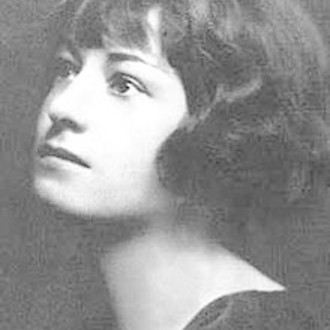Мы используем файлы куки, чтобы Bookmate и наши рекомендации работали лучше.
Подробнее на странице Политика Cookies
Подробнее на странице Политика Cookies
Принять все Cookies
Выбрать cookies
Что-то пошло не так. Попробуйте ещё раз.

en
Dorothy Parker
de
- 1
Dorothy Parker was an American novelist, poet and screenwriter known for her sharp wit and critical works. Her humorous poetry, incisive short stories, and contributions to 20th-century urban literature made her a beloved figure in 20th-century literature.
Born Dorothy Rothschild on 22 August 1893 in Long Branch, New Jersey, Parker grew up in Manhattan. She often claimed, "I was born in a New York hospital, but my parents didn't have the sense to wait. Dorothy lost her mother when she was five and her stepmother a few years later. Parker attended the Convent of the Blessed Sacrament and later Miss Dana's School in New Jersey, although she never graduated.
After her father died in 1913, Parker supported herself by playing piano in a dance school. In 1914, she sold her first poem to Vanity Fair. By 1917, she had joined the editorial staff of Vogue and soon moved to Vanity Fair as a staff writer. Her theatre reviews for the magazine showcased her biting humour, which often offended influential figures and led to her dismissal in 1920.
Parker gained recognition as a founding member of the Algonquin Round Table, a group of writers and critics who met regularly at the Algonquin Hotel. Her lunchtime remarks and verse frequently appeared in Franklin P. Adams's column, and her national reputation grew. In 1925, she began contributing to The New Yorker, becoming known for her poetry and book reviews under the byline "Constant Reader".
Her first book of poems, Enough Rope (1926), sold over 47,000 copies and was praised by critics for its humour and authenticity. It was followed by Sunset Gun (1928) and Death and Taxes (1931). Her short stories, including Big Blonde (1929), which won the O. Henry Award, revealed a bittersweet, introspective style.
In the 1930s, Parker moved to Hollywood to work on screenplays with her husband, Alan Campbell. Their work included A Star Is Born (1937), for which they were nominated for an Academy Award.
Despite her professional success, Parker faced challenges, including bouts with depression and political controversy. Her left-wing activism and affiliation with the Communist Party led to her blacklisting during the McCarthy era.
Dorothy Parker died of a heart attack on June 7, 1967, in New York City. Her literary legacy endures, mainly through The Portable Dorothy Parker (1944), a collection of her stories and poems that remains in print.
Born Dorothy Rothschild on 22 August 1893 in Long Branch, New Jersey, Parker grew up in Manhattan. She often claimed, "I was born in a New York hospital, but my parents didn't have the sense to wait. Dorothy lost her mother when she was five and her stepmother a few years later. Parker attended the Convent of the Blessed Sacrament and later Miss Dana's School in New Jersey, although she never graduated.
After her father died in 1913, Parker supported herself by playing piano in a dance school. In 1914, she sold her first poem to Vanity Fair. By 1917, she had joined the editorial staff of Vogue and soon moved to Vanity Fair as a staff writer. Her theatre reviews for the magazine showcased her biting humour, which often offended influential figures and led to her dismissal in 1920.
Parker gained recognition as a founding member of the Algonquin Round Table, a group of writers and critics who met regularly at the Algonquin Hotel. Her lunchtime remarks and verse frequently appeared in Franklin P. Adams's column, and her national reputation grew. In 1925, she began contributing to The New Yorker, becoming known for her poetry and book reviews under the byline "Constant Reader".
Her first book of poems, Enough Rope (1926), sold over 47,000 copies and was praised by critics for its humour and authenticity. It was followed by Sunset Gun (1928) and Death and Taxes (1931). Her short stories, including Big Blonde (1929), which won the O. Henry Award, revealed a bittersweet, introspective style.
In the 1930s, Parker moved to Hollywood to work on screenplays with her husband, Alan Campbell. Their work included A Star Is Born (1937), for which they were nominated for an Academy Award.
Despite her professional success, Parker faced challenges, including bouts with depression and political controversy. Her left-wing activism and affiliation with the Communist Party led to her blacklisting during the McCarthy era.
Dorothy Parker died of a heart attack on June 7, 1967, in New York City. Her literary legacy endures, mainly through The Portable Dorothy Parker (1944), a collection of her stories and poems that remains in print.
больше
годы жизни: 22 августа 1893 – 7 июня 1967
Книги
Аудиокниги
- недоступно
Впечатления
- Нравится
- Комментировать
- ПоделитьсяFacebookTwitterСкопировать ссылку
- Пожаловаться
👍Worth reading
- Нравится
- Комментировать
- ПоделитьсяFacebookTwitterСкопировать ссылку
- Пожаловаться
💞Loved Up
👍Worth reading
- Нравится
- Комментировать
- ПоделитьсяFacebookTwitterСкопировать ссылку
- Пожаловаться
fb2epub
Перетащите файлы сюда,
не более 5 за один раз
